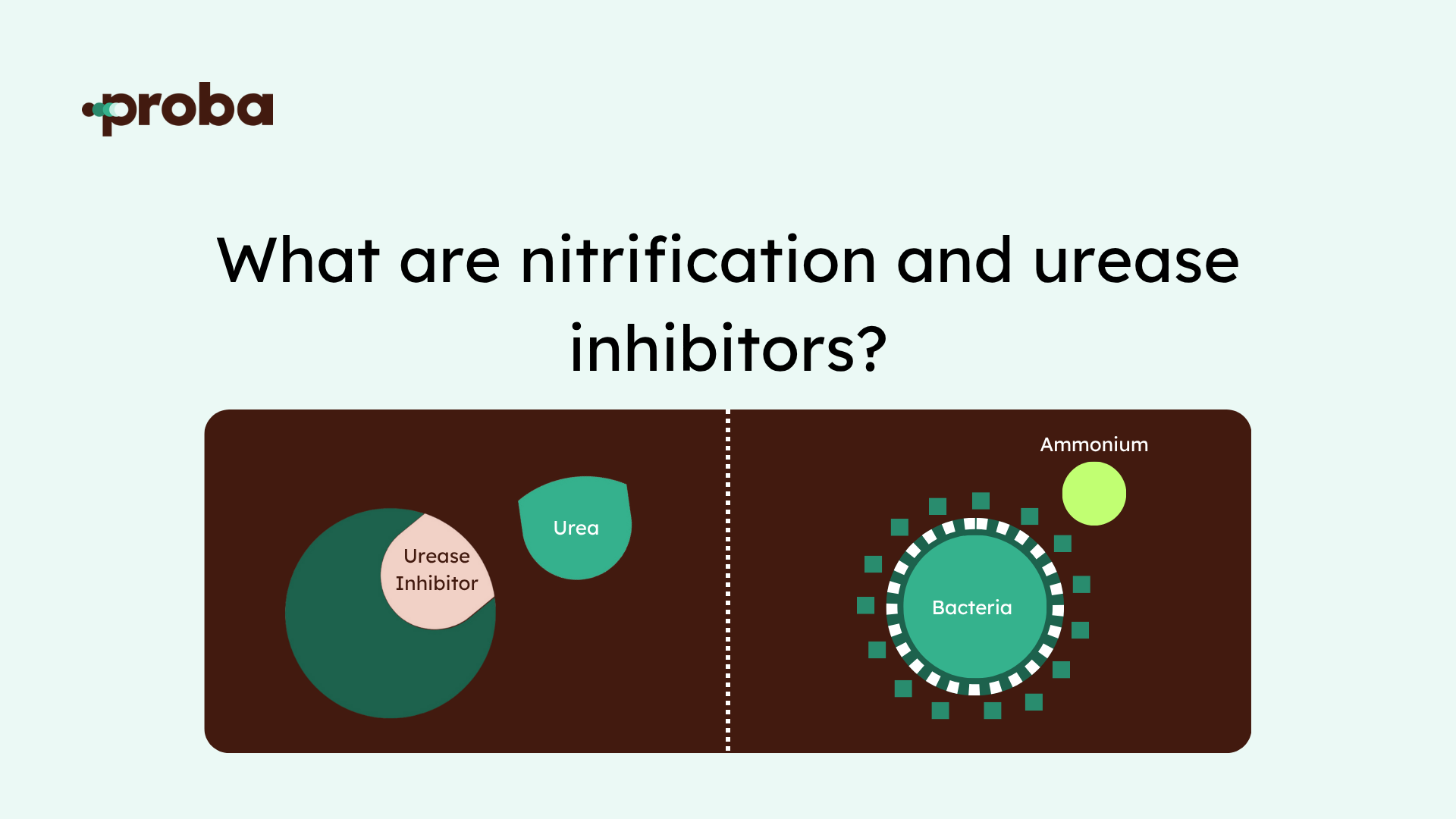Understand inhibitors and insetting in just 6 minutes!
Disclaimer: This audio is generated through Google’s NotebookLM, an AI-driven tool, and is designed for informational purposes only. While it provides a simplified explanation of fertilizer inhibitors, it may not capture all nuances of the topic.
When fertilizers, especially nitrogen-based fertilizers like urea, are applied to soil, some nitrogen can be lost due to processes like nitrification and urea breakdown, leading to increased greenhouse gas emissions and less efficient nutrient use by crops. This is where nitrification and urease inhibitors come in—they can help mitigate these losses and improve nitrogen efficiency of fertilizers.
Nitrification Inhibitors
Nitrification is a natural process where soil bacteria convert ammonium (NH₄⁺) into nitrate (NO₃⁻), a form that can be absorbed by plants but is also more prone to leaching and transforming into nitrous oxide (N₂O), a potent greenhouse gas. Nitrification inhibitors slow this conversion, keeping nitrogen in the ammonium form longer. This reduces N₂O emissions by up to 53% (Fan et al., 2022), while also decreasing nitrate leaching and providing more sustained nitrogen availability for crops.
Urease Inhibitors
Urease is an enzyme that breaks down urea-based fertilizers into ammonium and carbon dioxide. Without proper control, nitrogen is rapidly lost as ammonia gas (NH₃), leading to air pollution and inefficient fertilizer use. Urease inhibitors slow down the activity of urease, preventing these losses and retaining nitrogen in the soil for longer periods. Research shows that urease inhibitors can reduce NH₃ volatilization by up to 51% (Fan et al., 2022), offering substantial benefits for both crop performance and the environment.
Together, these inhibitors not only enhance nitrogen fertilizer efficiency but also play a significant role in reducing greenhouse gas emissions and mitigating water contamination risks.
Are you working with nitrification and urease inhibitors? You could benefit from working with Proba. We help organizations scale sustainable practices through insetting and carbon finance, supporting the hard-to-abate supply chains to adopt greener technologies. Reach out to explore how we can help.

